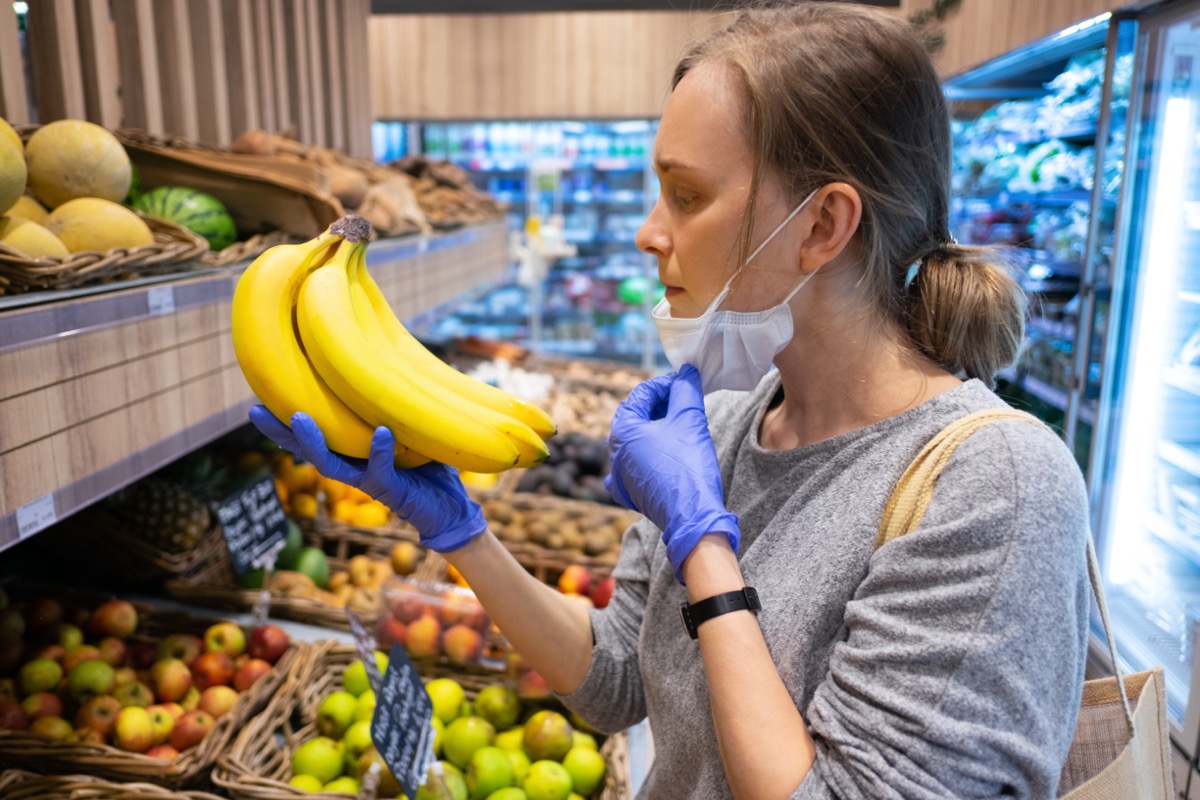Things to never do while shopping, say the experts
As the COVID-19 pandemic eases, many of us have started to resume our usual activities, including shopping in stores. And while it can be nice to shop with less anxiety, even without a mask, if local regulations allow it, we remember that the coronavirus is not the only thing to be wary of when filling. of our trolleys. There are some bad shopping habits that can seriously test your health, not to mention your wallet. These are five things you should never do when shopping, experts say. Read on and to ensure your health and the health of others, don’t miss these Sure Signs You May Have Already Had COVID.
If you’re looking for clothes, a watch, a car, or other potentially expensive items, you might not want to shop right after the gym. A 2018 study conducted at the University of Pennsylvania found that men who received a single boost of testosterone showed a higher preference for “prestige goods,” luxury items associated with superficial cultural cachet. What is the training for? It boosts testosterone. Researchers believe it may activate our overriding instinct to be the best dog. (Although the study involved men, the scientists noted that other research found that T also makes women crave status.) To avoid overspending, you may want to shop like a warm-up, not like a cooldown.
RELATED: I am a doctor and it ages your skin terribly
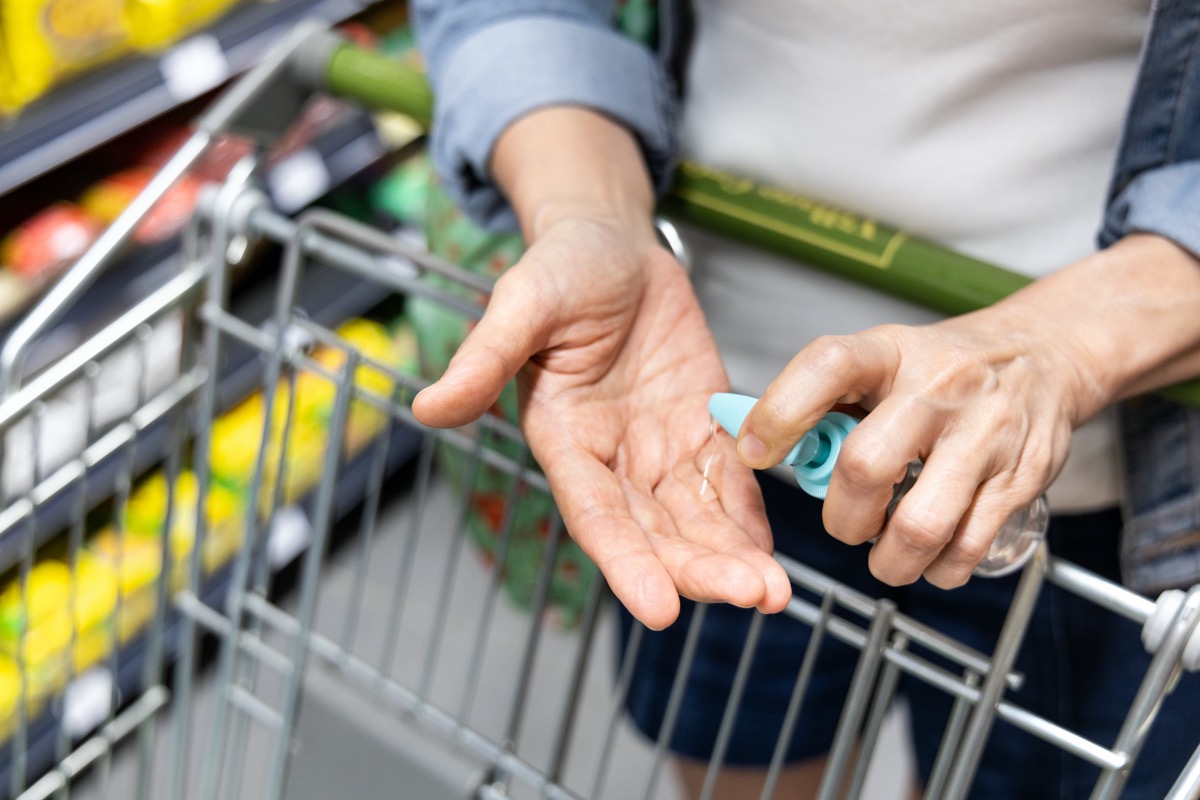
Even before the coronavirus pandemic, experts were warning of what you could catch at the grocery store. A study found that refrigerator cabinet handles contain over 1,200 times the bacteria found on the average cell phone. Another determined that more than half of the baskets harbor pathogenic bacteria, such as E. coli. To stay safe, wipe down your cart handle with antibacterial wipes if available, use hand sanitizer after shopping for groceries, and wash all items thoroughly after you get them home.
RELATED: Do you look older? Stop doing these things now, experts say
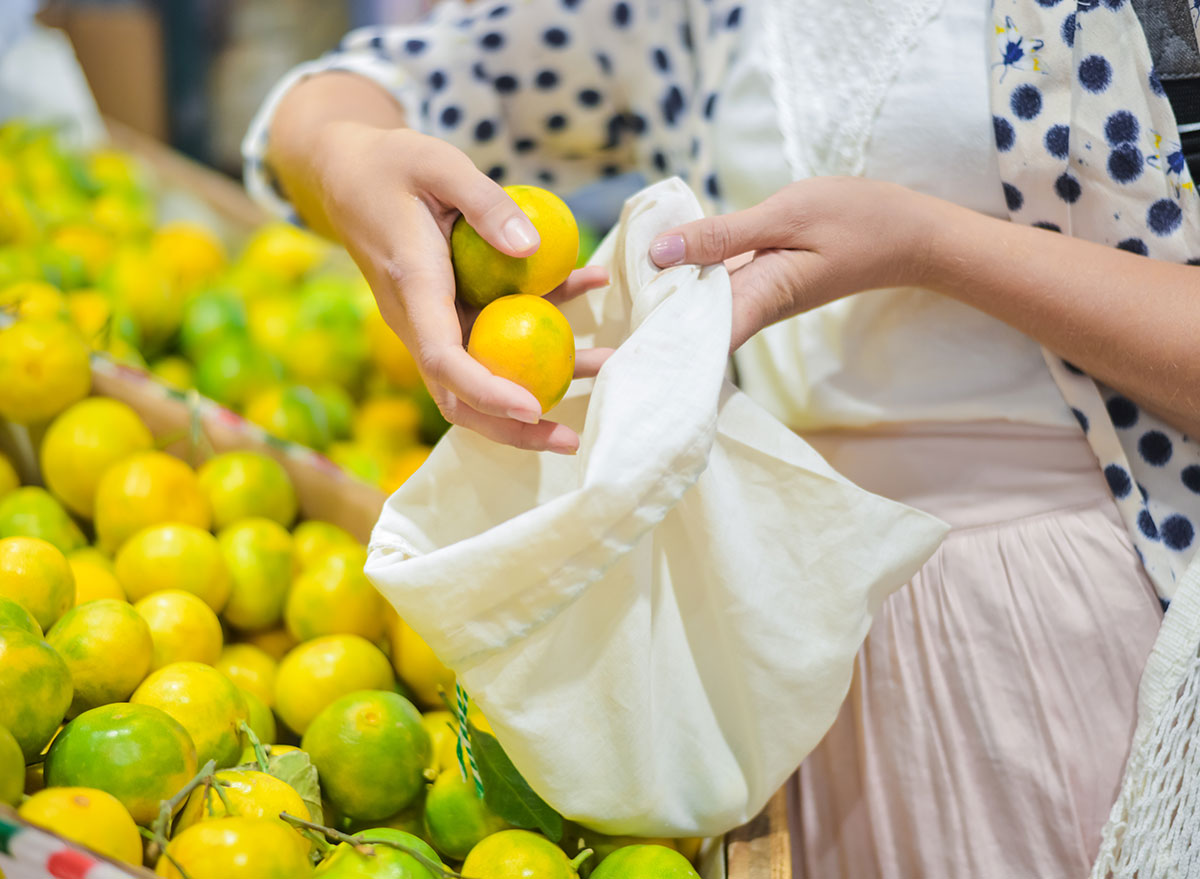
The trend for reusable bags is booming as large states like New York recently banned single-use plastic bags. It’s good for the environment, but maybe not for your health. A 2011 study from the University of Arizona found bacteria in 99% of the reusable bags they tested and 8% contained E. coli, which may indicate fecal contamination. In addition, only 3% of reusable bag owners report cleaning them regularly. Pro tip: Wash your multi-purpose bags with hot water and disinfectant weekly.
RELATED: 15 supplements every woman should take, say doctors
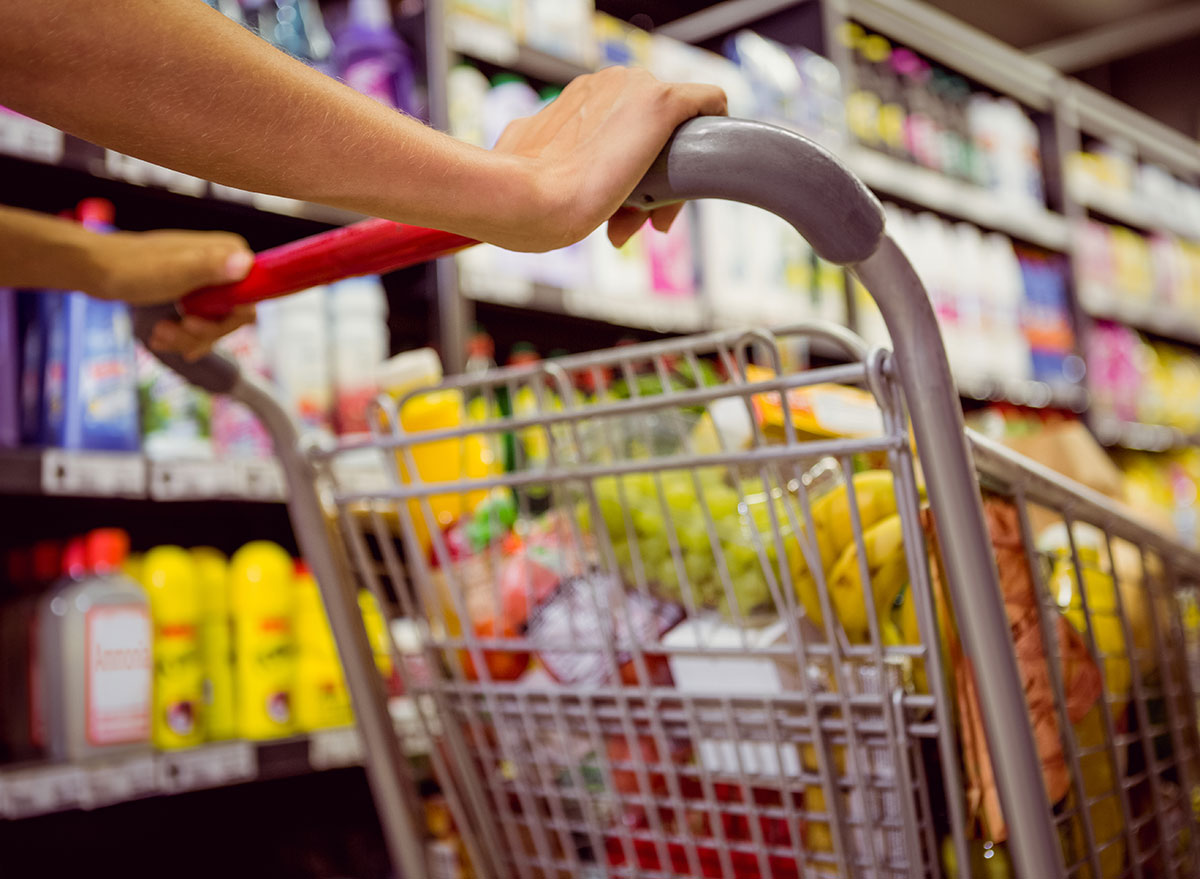
It’s a rule of thumb: going to the grocery store when your stomach is empty can overload your cart. But shopping when you’re hungry doesn’t just make you want to eat. An analysis of the 2015 studies at the University of Michigan find that people who shop when they are hungry have a greater appetite for more of anything, including non-food items as unappealing as paper clips. “This presumably occurs because hunger makes acquisition concepts and behaviors more accessible, which influences decisions in situations to which they can be applied, â€the researchers wrote. Translation: When we are hungry, we go a little bit crazy.
RELATED: 40 Ways to Stay Healthy After 40, Experts Say
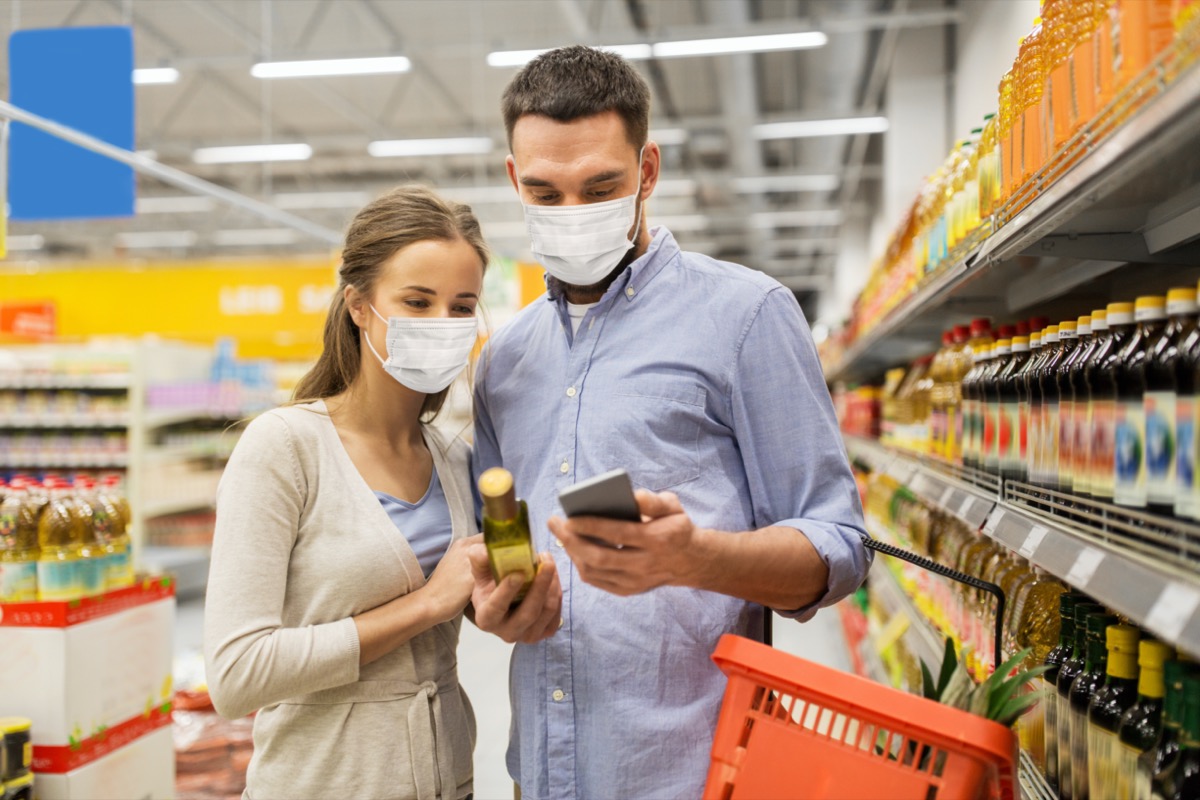
Added sugar and excess sodium are two major dangers in the standard American diet. Consuming too much of the former can lead to type 2 diabetes, the latter to high blood pressure. Both can increase your risk for obesity, heart attack, and stroke. The added sugar lurks in more groceries than you might think, including low-fat yogurt, bread, and pasta sauce. And frozen meals and canned vegetables can be high in sodium. Always check nutrition labels and try to buy products with little or no added sugar and as little sodium as possible. Frozen vegetables are just as nutritious as they are fresh, and they contain a fraction of the sodium in canned food. And to get through this pandemic in better health, don’t miss these 35 places where you’re most likely to catch COVID.

